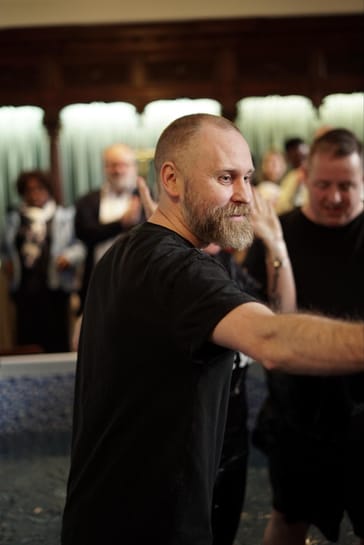1 Corinthians 7:20-24
20 Yes, each of you should remain as you were when God called you. 21 Are you a slave? Don’t let that worry you—but if you get a chance to be free, take it. 22 And remember, if you were a slave when the Lord called you, you are now free in the Lord. And if you were free when the Lord called you, you are now a slave of Christ. 23 God paid a high price for you, so don’t be enslaved by the world.[g] 24 Each of you, dear brothers and sisters,[h]should remain as you were when God first called you.
God paid a high price for you, so don’t be enslaved by the world.
I remember when I was in my early 20’s making friends with a boy who had severe schitzophrenia . After a particularly traumatic episode he was taken to a secure facility where he could be treated safely. I went to visit him one day and there was no one at the door, so I walked in and spent a pleasant afternoon with my friend. However, when I went to leave someone was on reception and they asked me to sign out. Now, I had never signed in so I couldn’t sign out! They thought that I was a patient trying to trick them and told me that I was not allowed to leave. They wouldn’t listen to me and would not allow me to have my freedom and even if just for an hour, I felt completely powerless, frightened and frustrated.
Of all the values in our culture, perhaps the one that which underpins them all is our value of freedom. This is a uniquely Christian value and it flows from our belief that we are all made in the image of God and are equal. If there is no God, then it is fair to assume that some of us are more evolved than others and that the best should survive and dominate. It was the Evangelical Church that led the fight to abolish slavery for this reason. Today, we live in a culture that wants the fruits of Christian faith (freedom, equality and tolerance) but without the roots (Jesus).
For most people freedom means that we should be allowed to do what we want to follow our passions, dreams and appetites, provided we don’t cause too much unnecessary harm to others. However, Paul speaks about freedom differently. He encourages slaves to not worry too much about their slavery but to use their slavery to share glory of the Gospel. Importantly, Paul is not advocating or excusing slavery. He is in no way arguing that slavery is an acceptable form of relationship. At this point in history slavery was an everyday reality and affected everyone in some way and his description is not in any way condoning this. However, he sincerely believed that you could be a social slave and spiritually free.
Freedom for Paul is not the ability and opportunity to chase your desires but the liberty to no longer be ruled by them. We think that freedom is when we do what we want but what if freedom is the ability to do what is right? Following our appetites is a lot easier than following what is right. So how do we get true freedom?
We become slaves.
If you were free when the Lord called you, you are now a slave of Christ.
1 Cor 7:22
For you have been called to live in freedom, my brothers and sisters. But don’t use your freedom to satisfy your sinful nature. Instead, use your freedom to serve one another in love.
Galatians 5:13
The phrase ‘serve one another in love’ can be better translated as enslave yourself to love. Our pursuit of freedom leads us to slavery. When we choose to be a slave to God, to trust and obey him, he leads us to fullness of life and freedom. This freedom, when experienced, is so transformational that you could be in a dead-end job, you could be in a toxic team, you could have the worst friends, you could be a literal slave and be the most free person in the room. Whom the Son sets free is free indeed.
Just imagine for one moment what this means. For there to be no borders, no limitations and no barriers to the power of God’s love and goodness to flow through in and through you.


